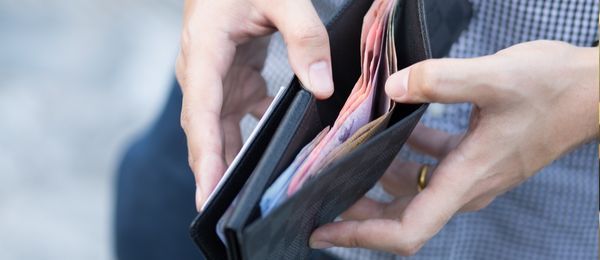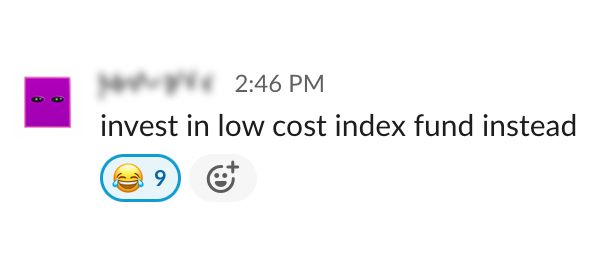It’s the end of the night/afternoon/coffee after the Bondi to Coogee walk.
You’ve had a great/reasonable/terrible time.
Someone’s about to say, “We should do this again sometime.”
The waiter comes over with the bill.
Who pays?

Who should pay on a first date?
We asked our Spaceship community, and here’s how people answered.
- 43% think the person who asked, should be the person who pays
- 33% think you should go halves
- 24% think the man should pay*
*These people’s answers applied specifically to heterosexual relationships.
(What do you think? Click through and share.)

Should the person who asks be the person who pays?
Most people thought that if you ask someone out, you should be prepared to pay for it.
AJ says you should factor it into your planning.
“They are initiating the idea so hopefully they have already thought about where and when… coffee vs a restaurant.”
Tash said, “I think it’s nice if the person who initiated the first date pays, but I think it should not be an expectation.
I would pay for the date if I asked someone out or I would raise splitting the costs early on.”

Should you go halves?
The next most common answer was that you should go halves.
People who answered this way did so for two main reasons:
- Equality, or,
- They didn’t want to owe the other person.
Funky said,
“(You should pay) 50/50 (both) because time is the most valuable thing you can give anyone, and it should be valued equally.
Also by keeping it 50/50 it also means you have to be honest about your financial situation, if, for example, they invite you to somewhere outside your budget.
It may not seem generous but it’s more honest. It also removes any feeling of obligation or indebtedness.”
Safety is also a factor: “Share as you don’t want any “you owe me” moments later,” said Jan.

Should the man pay?
In a heterosexual relationship, should the man pay?
This was the least common answer. People who answered this way hoped it would set the tone for the rest of their relationship, or thought it communicated something about their identities.
“I’m in a heterosexual relationship and think it’s so important for guys to show respect to women so paying for dates is the easiest way for guys to do that,” said Toyah.
“It is emasculating if you let the women pay on the first date or anytime before you get together,” answered name withheld.
“I believe there are certain behaviours that make male-female dynamics work optimally, and I think the man taking the lead to plan and pay for the first date sets the correct tone for a hetero relationship,” said Nat.

Some people just don’t want to be paid for.
“I don't think it's romantic, a guy paying for me – I can pay my own way, thanks. It’s fine for a birthday or similar treat,” said a different Nat, who’d prefer to go halves.
Bruno also prefers a split bill. “This doesn't mean I don't offer to pay the whole bill, sometimes. It depends on my financial shape and how I feel at the time. I also HATE having people pay for stuff for me.”

Sometimes, it comes down to the date.
Catherine has some stories.
“If it's an online first meeting of strangers and they’ve clearly lied about their age, used outdated photos of when they were thinner with more hair or other embellishments then they should absolutely pay,” she answered. “I'm happy to pay half but it impresses me when the male pays (I find it a bit disappointing when he asks for the receipt for tax purposes).”
“If it goes well, and he pays on the first date, I would pay on the second date,” said Sophie.

Why’s it so controversial?
Socioeconomic statuses, gender politics, the cost of living, our expectations, different communication styles, the way we meet…
Reaching for the bill on a first date can be symbolic of all of these considerations wrapped up in one gesture.
Plus, first dates can be high stakes affairs, with so many people on a mission to get their short- or long-term dating needs met.
It’s why dating apps are such big business.
But, as Funky says, “The hard part is knowing or asking how the other person feels. But if you can’t talk about money, then any long term relationship is bound to fail.”

No matter who pays, dating apps are big business.
At the time of writing, we’re keeping Bumble and Match Group in some of our Spaceship Voyager portfolios, and Spaceship Voyager customers can also invest in them by using our US Investing service.
Here’s some more from our investment team about why we think dating apps are Where the World is Going.
“Online dating is a long term secular trend. Together, Match and Bumble dominate the global online dating market and we believe their scale is only going to fuel further growth. Both these businesses are cash generative, despite advertising (which would be high margin) not being a meaningful contributor of earnings.
We believe Match and Bumble are both high quality businesses, with a long runway of growth, particularly outside the US in emerging markets, and they are both currently available at an attractive price.
We believe a lot of negativity has been priced in for both Match and Bumble – which means it’s already reflected in the price. The market is concerned of slowing growth. There are a lot of dating apps out there and the barriers for new entrants are very low. While a dating app is not a difficult product to build, very few players reach the scale of Tinder, Hinge (which are both owned by Match) and Bumble.
There has been a lot of negative media on Tinder. They’ve been through multiple management changes in the last few years, there was a lawsuit by the co-founders, and their brand perception was hurt with Tinder becoming associated with casual relationships.
Perception aside, the actual numbers of the business tell a different story. Tinder is estimated to have over 75 million annual active users and around 10.5 million who paid for the platform last year. Tinder generated close to $1.8 billion in revenue in 2022, and accounted for over 57% of the Match Group’s revenue. The Match Group not only owns Tinder, but also owns Hinge, Plenty of Fish and a portfolio of other dating platforms. Despite the negative media, Tinder has been growing users and revenue in the last five years and the business is highly cash generative. The US still accounts for over half the group’s revenue. There is a long runway of growth, particularly in markets such as India, South East Asia, Latin America.
Similarly, we think Bumble is on track to becoming a billion dollar revenue company. They’ve built a reputation for more serious relationships by building a safer platform for women, they are now driving monetisation by testing lower price points, and are strategically expanding overseas by using local influencers in each market.”
So what’s the Spaceship view?
We put it to the team.

Some of our Spaceship Voyager portfolios invest in Match Group and Bumble at the time of writing.
Important! We’re sharing with you our thoughts on the companies in which Spaceship Voyager invests for your informational purposes only. We think it’s important (and interesting!) to let you know what’s happening with Spaceship Voyager’s investments. However, we are not making recommendations to buy or sell holdings in a specific company. Past performance isn’t a reliable indicator or guarantee of future performance.
The information in this article is prepared by Spaceship Capital Limited (ABN 67 621 011 649, AFSL 501605). It is general in nature as it has been prepared without taking account of your objectives, financial situation or needs.



